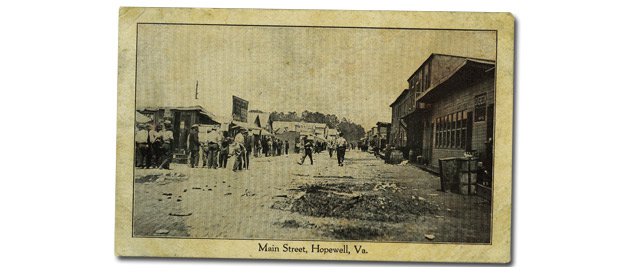The beginning of a new era at Abingdon’s Barter Theatre.

Barter Theatre Lobby
Barter Theatre’s newly renovated lobby.

Bartehr Theatre Neon Sign
Richard Rose in front of the neon doors, which were designed by artist D.R. Mullins.
Earlier this year, the 180-year-old Barter Theatre building in tiny Abingdon, a town of fewer than 8,000 residents, ushered in a new era with the unveiling of its newly renovated and expanded lobby. Its unique neon doors, made by local artist D.R. Mullins, provide a blazing blend of modern art that “moves Barter into the next century,” says Associate Director Nick Piper, while Richard “Rick” Rose, the theater’s producing artistic director, describes the space as “not so modern that the historic is lost.” It was an important moment for the theater, which draws more than 160,000 visitors a year to this courthouse town—once a burley tobacco capital, and still a commerce center for the nearby coalfields whose inviting pastures and skyscraping mountains delight the painters, playwrights, storytellers and actors who come together for Barter Theatre productions throughout the year.
But it was also a bittersweet moment for the company. Just days before the unveiling of the space, 90-year-old Mary Dudley Porterfield, second wife of the theater’s legendary founder Bob Porterfield and a force herself behind the operation following his death in 1971, died, closing the curtain on the first 81 years of the theater’s history.
The affable but unemployed Bob Porterfield conceived the idea for the theater after returning home to Virginia from New York when he couldn’t find work there as an actor during the Great Depression. Born in 1905 in Austinville, Porterfield had grown up in nearby Saltville. He brought with him a rag-tag troupe of long-haired, hungry actors who—naturally—raised eyebrows among the genteel socialites of Abingdon. Yet Porterfield, always a charmer, soon showed how well his actor buddies could sing “Rock of Ages” at an Abingdon church. Next, Porterfield told farmers they could fork over their tomatoes, potatoes, cottage cheese and milk in exchange for tickets to his “Barter Theatre.” The opening year was 1933. Legend says one man subsequently slipped a dead snake into the box office to gain admission; another milked a cow on Main Street. (It is rumored that once some bartered turtles got loose in the lobby.)
Marquee actors, including Patricia Neal, Frances Fisher, Kevin Spacey, Gary Collins, Wayne Knight and Larry Linville (TV’s Frank Burns on “M*A*S*H”), earned their chops on the Barter’s stage. It was also a proving ground for James Burrows, a creative force behind hit TV shows “Cheers,” “Frasier” and “Will and Grace.” Piper says, “I think it’s neat this theater, that was based on such a unique idea, has influenced so many people who have come through here—Gregory Peck or Ned Beatty or Ernest Borgnine or all these other guys who went on and did many other things.”
All these years later, the shows go on at Barter Theatre, which, in 1946, was named the State Theater of Virginia. On its two stages, nearly year-round, the Barter Theatre produces musicals, comedies and thought-provoking, controversial dramas under the direction of the larger-than-life artistic director Rose, who came to town 20 years ago and managed to nearly double attendance in his first year. Piper, an actor who arrived in 1990, praises Rose for the “tremendous growth of the theater.”
Yet Rose’s leadership has not been without controversy. He has pushed boundaries in this isolated southwestern Virginia community. Cast members in a production of “The Full Monty” stood on stage in G-strings, and occasionally performers swear on stage; some have even shed their clothes, as they did in the 2003 Barter Stage II production of “The Liquid Moon,” a play that won headlines and big attendance records. Rose offers no apologies. “That single show did more to establish our organization, both from a donor standpoint and from a branding standpoint, than anything we’ve done,” he says. “It wasn’t gratuitous. It was a religious piece in the end, so it really did match up with the morals and ethics of the people of this region. And we stood our ground. We didn’t cave in to people saying, ‘You can’t do it. You have to take it off the stage.’ And I think people had more respect for that.” Certainly, Rose says, not all they do is well received. “Some people say they’re never coming again,” Rose says, laughing a little. “And then you see them at the next show.”
Would Bob Porterfield have done it this way? “Ah,” Rose says with a bare-faced grin over a hamburger at Abingdon’s House on Main restaurant. “Bob Porterfield, in his memoirs, talks about when they did ‘Cat on a Hot Tin Roof’ for the first time. And, in the beginning of the second act, there’s this whole, long swearing segment by Big Daddy. And by the second intermission, he remembers one of the ladies in town coming up to him and saying, ‘How dare you do that?’ And he says, ‘Well, Miss, why are you still here for the third act?’’’
Rose, who grew up in a large family in rural Lena, Wisconsin, arrived in Abingdon with Aldridge, his wife of 30 years, who has designed costumes and helped produce shows. Like the Porterfields, who also worked side by side at Barter Theatre, the Roses start with tradition and push ahead: “I think people come to Barter because we focus on storytelling and the heart of a story,” Aldridge says. “The key to any of that,” Rose adds, “is to respect the past and move to the future. In other words, you can’t live in the past. And you can’t allow the past to dictate who you are or what you want your vision to be.”









